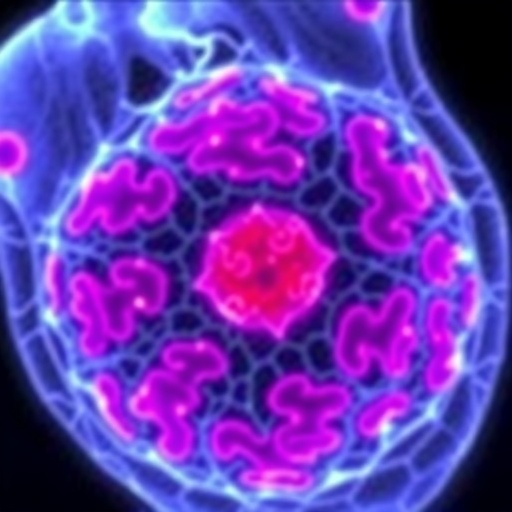Chimeric antigen receptor (CAR) T cell therapy has emerged as a revolutionary approach in the treatment of certain cancers. However, its application in solid tumors has been fraught with challenges that limit the efficacy of the treatment. One primary obstacle is the highly immunosuppressive tumor microenvironment, which hampers T cell activity and limits their ability to exert anti-tumor effects. Additionally, the complex and often cumbersome manufacturing process of CAR T cells further complicates the therapeutic landscape. Each step in the production process can significantly influence the yield and functional characteristics of CAR T cells, ultimately impacting their potency and longevity once administered to patients.
The manufacturing of CAR T cells is not merely a mechanical process; rather, it is meticulously tailored to enhance the yield and closely monitor the inherent qualities of the T cells being produced. Among the critical determinants of these qualities is metabolic fitness, which represents the ability of T cells to utilize nutrients efficiently and generate energy for optimal functioning. Despite its importance, the specific metabolic requirements of T cells throughout the various stages of the CAR T cell manufacturing process remain largely underexplored. This gap in knowledge represents a significant hurdle for researchers aiming to refine CAR T cell therapies for solid tumors.
In a groundbreaking study, researchers employed optical metabolic imaging (OMI), a cutting-edge, non-invasive, label-free technique, to delve into the metabolic dynamics of CAR T cells throughout their production. By utilizing OMI, investigators can directly assess and visualize the metabolic activity of single cells in real time, rendering it an invaluable tool for understanding how the cells’ environments—particularly media composition—affect their metabolic profiles, activation kinetics, and phenotypes.
The researchers found that the nutrient composition of the media employed during the manufacturing process profoundly influences the metabolic state of CAR T cells. Variations in the concentrations of key metabolites lead to distinct cellular responses that can impact the efficiency of the T cell activation and expansion process. For instance, certain nutrient profiles have been shown to enhance T cell vigor, allowing for a more robust activation response, which is crucial for generating an effective anti-tumor immune response. The researchers’ findings underscore the potential of OMI in not only monitoring but also optimizing media conditions for maximal T cell performance.
Furthermore, the study revealed that OMI could provide insights into the cell cycle progression of CAR T cells. By analyzing metabolic characteristics, the researchers were able to discern between different stages of the cell cycle. This capability offers a transformative approach to assessing which T cells are primed for expansion and activation, enabling more strategic selection during the manufacturing process.
Another significant outcome of this investigation was the demonstration of OMI’s predictive power regarding gene transfer methods used in CAR T cell production, specifically in the contexts of viral transduction and electroporation-based CRISPR/Cas9 approaches. By correlating OMI measurements with cellular responses post-gene transfer, the researchers were able to establish criteria for optimized gene transfer conditions, facilitating improved integration and expression of CARs within T cells.
In particular, this analysis was crucial for the CRISPR-edited anti-GD2 CAR T cell model, a promising candidate for treating neuroblastoma. The metabolic signatures identified by OMI indicated an oxidative metabolic phenotype that is associated with enhanced in vivo activity against tumor cells. These findings are pivotal as they not only highlight the importance of metabolic profiling in CAR T cell manufacturing but also help pinpoint the specific metabolic pathways that contribute to heightened anti-tumor efficacy.
What is particularly compelling about the results of this study is the implication that iterative adjustments to the manufacturing process, informed by OMI data, could lead to significant improvements in CAR T cell performances. Researchers are increasingly recognizing that the optimization of metabolic fitness is not simply beneficial but rather essential to developing therapeutics capable of overcoming the limitations posed by the solid tumor microenvironment.
By leveraging OMI as a robust analytical framework, researchers now have the capacity to monitor and optimize manufacturing practices to yield CAR T cells that exhibit superior metabolic fitness. This approach paves the way for more personalized and effective cancer therapies, as the interplay between cell metabolism and therapeutic outcomes becomes increasingly elucidated.
The potential implications of OMI extend far beyond the realm of CAR T cell manufacturing; they also suggest opportunities for advancing other cellular therapies. As researchers seek to enhance the performance of not only CAR T cells but also other immune cell types, metabolic imaging could become a standard part of the analytical toolkit in the field of regenerative medicine and immunotherapy.
Ultimately, the research underscores a paradigm shift in how we think about the production and optimization of cellular therapies. By recognizing the significance of metabolic dynamics, scientists can enhance CAR T cell efficacy against solid tumors beyond current limitations, heralding a new era in personalized cancer treatment. The advancements captured in this research not only advance the field of CAR T therapy but also serve as a beacon of hope for patients battling solid tumor malignancies.
In conclusion, the integration of optical metabolic imaging in CAR T cell manufacturing represents a pivotal development in the quest to overcome the formidable challenges associated with solid tumors. By focusing on cellular metabolic fitness and employing advanced imaging techniques, researchers can refine treatment modalities and elevate the therapeutic efficacy of engineered T cells. As the field progresses, the potential to translate these findings into clinical practice could revolutionize cancer therapy, delivering significant benefits to patients facing the bleakest of prognoses.
Subject of Research: The metabolic optimization of CAR T cell therapies for solid tumors using optical metabolic imaging.
Article Title: Label-free metabolic imaging monitors the fitness of chimeric antigen receptor T cells.
Article References:
Pham, D.L., Cappabianca, D., Forsberg, M.H. et al. Label-free metabolic imaging monitors the fitness of chimeric antigen receptor T cells. Nat. Biomed. Eng (2025). https://doi.org/10.1038/s41551-025-01504-7
Image Credits: AI Generated
DOI: 10.1038/s41551-025-01504-7
Keywords: CAR T cell therapy, optical metabolic imaging, solid tumors, immunotherapy, metabolic fitness, gene transfer, neuroblastoma, CRISPR/Cas9, tumor microenvironment, cellular manufacturing.




